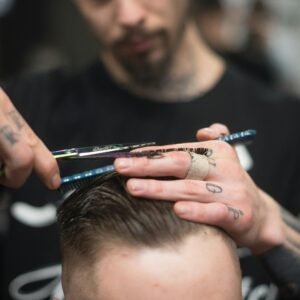kids skincare is delicate and unique, requiring special care to maintain its health and vitality. As parents, it’s essential to understand the specific needs of children’s skin and implement appropriate skincare routines. This article provides comprehensive information on kids’ skincare, addressing common questions and offering practical tips.
Understanding Kids’ Skin
Thinner and more sensitive: Kids’ skin is generally thinner than adult skin, making it more susceptible to irritation and dryness.
Higher water content: Children’s skin has a higher water content, which can lead to increased sensitivity and susceptibility to environmental factors.
Developing sebaceous glands: Sebaceous glands, responsible for producing oil, are less active in children, resulting in drier skin.
Essential Skincare Steps for Kids
Gentle Cleansing:
Use a mild, fragrance-free cleanser suitable for children.
Wash the face twice daily, avoiding harsh scrubbing.
Rinse thoroughly with lukewarm water to remove residue.
Moisturization:
Apply a hypoallergenic moisturizer after cleansing to hydrate the skin.
Consider using a thicker moisturizer during colder months or for dry skin.
Sun Protection:
Reapply sunscreen every two hours, especially after swimming or sweating.
Protect children from excessive sun exposure, especially during peak hours.
Hand Hygiene:
Encourage children to wash their hands frequently with soap and water, especially before meals and after using the bathroom.
Common Skin Issues in Children
Sunburn: A painful skin condition caused by excessive sun exposure.
Diaper Rash: A skin irritation that occurs in the diaper area.
Addressing Specific Skin Concerns
Eczema:
Avoid irritants like harsh soaps, detergents, and fabrics.
Consider using cool compresses or oatmeal baths to soothe itchy skin.
Acne:
Wash the face gently twice a day with a mild cleanser.
Avoid touching or picking at pimples.
Consult a pediatrician or dermatologist for severe acne.
Sunburn:
Apply a cool compress to the affected area.
Use over-the-counter pain relief medication as needed.
Seek medical attention if the sunburn is severe or accompanied by blisters.
Diaper Rash:
Change diapers frequently.
Use a barrier cream to protect the skin from urine and feces.
Expose the diaper area to air whenever possible.
Tips for Healthy Kids’ Skin
Avoid harsh products: Choose skincare products that are gentle and free from fragrances, dyes, and alcohol.
Limit screen time: Excessive screen time can lead to dry eyes and skin irritation.
Sleep hygiene: Ensure children get enough sleep to support overall health and skin function.
When to Consult a Pediatrician or Dermatologist
Persistent skin problems: If your child has persistent skin issues despite following proper skincare routines, consult a healthcare professional.
Unusual symptoms: If you notice any unusual symptoms, such as redness, swelling, or pain, seek medical advice.
Severe conditions: For severe skin conditions like eczema or acne, a pediatrician or dermatologist can provide specialized care.
Frequently Asked Questions About Kids’ Skincare
Q: How often should I wash my child’s face?
A: Washing the face twice daily with a gentle cleanser is usually sufficient.
Q: What are the signs of sun damage in children?
A: Signs of sun damage in children include sunburn, freckles, and premature aging. Sun damage can also increase the risk of skin cancer later in life.
Q: Can I use baby powder on my child’s skin?
A: While baby powder may seem harmless, it can be irritating to sensitive skin and can also be inhaled, posing a risk to the lungs. It’s generally best to avoid using baby powder on children.
Q: What are the benefits of using a humidifier in a child’s room?
A: A humidifier can help to add moisture to the air, which can be beneficial for children with dry skin or respiratory issues. However, it’s important to keep the humidifier clean to prevent the growth of mold and bacteria.
Q: Can I use coconut oil as a moisturizer for my child’s skin?
A: Coconut oil can be used as a moisturizer for children, but it may be too heavy for some skin types. If your child has sensitive or oily skin, it may be best to choose a lighter moisturizer.
Q: When should I see a pediatrician or dermatologist for my child’s skin problems?
A: If your child has persistent skin problems, unusual symptoms, or severe conditions, it’s important to consult a healthcare professional.
Q: How can I protect my child’s skin from environmental pollutants?
A: To protect your child’s skin from environmental pollutants, avoid exposing them to excessive pollution, use sunscreen, and choose products that are free from harmful chemicals.
Q: What is the best way to remove makeup from my child’s face?
A: Use a gentle cleanser or makeup remover specifically formulated for children.
Q: How can I prevent my child from scratching their itchy skin?
A: If your child has itchy skin, try to keep their nails short to minimize scratching. You can also use cool compresses or oatmeal baths to soothe the itch and reduce the urge to scratch.
Q: Are there any natural remedies for treating eczema in children?
A: While there is no cure for eczema, some natural remedies may help to manage symptoms. These include applying aloe vera gel, using oatmeal baths, and avoiding known allergens. However, it’s important to consult a pediatrician or dermatologist before trying any natural remedies.
Q: Can I use baby wipes to clean my child’s face?
A: Baby wipes can be used to clean your child’s face in a pinch, but they may contain fragrances or preservatives that can irritate sensitive skin. It’s generally best to use a gentle cleanser and water for daily face washing.
Q: How often should I cut my child’s hair to prevent scalp problems?
A: The frequency of haircuts depends on your child’s hair type and personal preference. However, regular trims can help to remove split ends and prevent scalp buildup.
By following these guidelines and addressing specific skin concerns, you can help your child maintain healthy and radiant skin throughout their childhood. Remember, consistency is key, so establish a regular skincare routine and make it a part of your child’s daily life.
To read more, click here.





